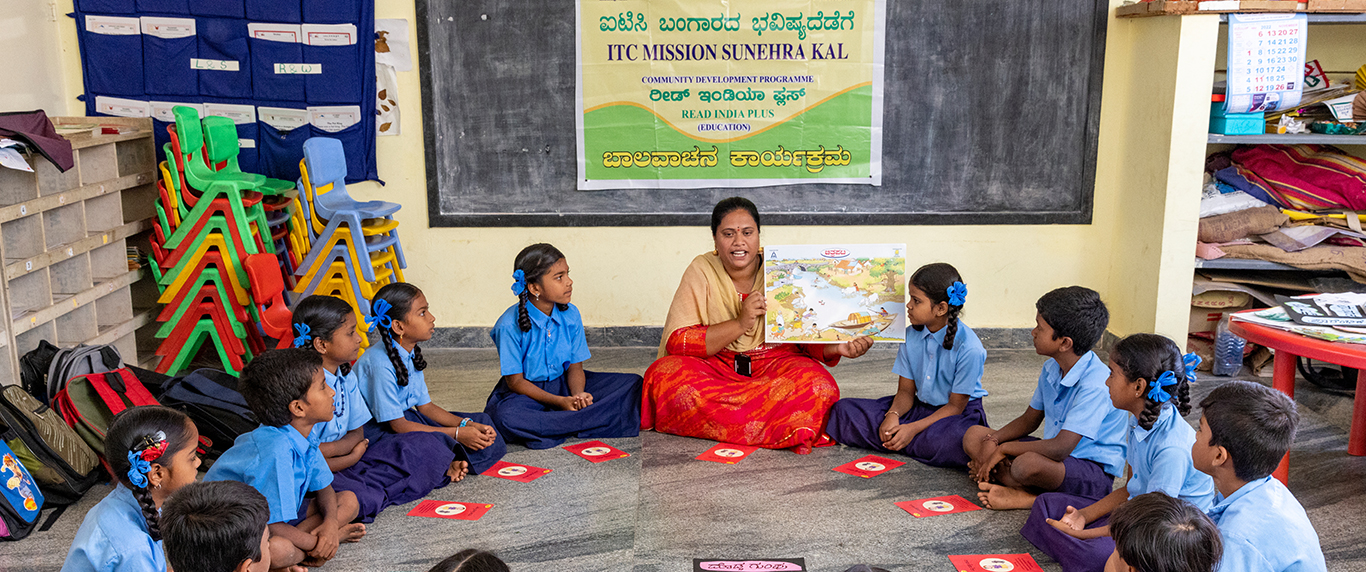
A major obstacle that prevents disadvantaged children from progressing to a better future is the fact that they cannot get a decent education, starting right from the primary education level.
ITC's Support to Education Programme aims at creating enabling conditions for underprivileged children to stay in school and complete their schooling as well as to improve learning outcomes through child-friendly pedagogy and interventions so that they have better skills and abilities by the time they complete their schooling. The interventions focus on universal access and retention, bridging of gender and social category gaps in elementary education, and improving the quality and outcomes of learning.
ITC partners with education providers to introduce modern teaching and assessment methods that help children to achieve higher learning levels and better results. For example, the Read India Plus in partnership with Pratham, one of India's leading NGOs in the education field - focuses on enhancing reading and mathematical ability among 6 to 14-year-old students.
These centres in villages provide coaching to help weak students keep up in school and drop-outs to return to the school system.
'Child-friendly Schools' is a focus area for the programme, which looks at improving infrastructure at identified government-owned primary schools and anganwadis. ITC works to strengthen School Management Development Committees so that parents are more engaged with local schools and take the onus of monitoring and maintaining the school infrastructure.
ITC also works to make smart classrooms functional either by installing new equipment or operationalising existing ones, and by training teachers to use them to improve learning methodologies and outcomes.
ITC's intervention in education also extends to secondary education, focusing on girl students in Classes 9 to 12. The initiative addresses two segments - those who have dropped out and need to be mainstreamed, and those who are currently in school and need guidance to plan their future.
Recognising the importance of Early Childhood Education and Care (ECCE) in the development journey of a child, ITC has been engaged in building the capabilities of anganwadi sevikas.
The first phase of the ECCE partnership with the Women Development & Child Welfare Department Andhra Pradesh has been successfully completed in 13 districts. Enthused by the positive feedback, ITC has now entered the second phase of the partnership to expand the programme to all 26 districts of Andhra Pradesh.